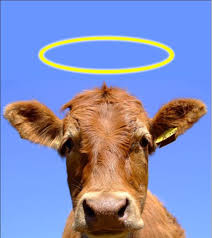I will travel 3,000 miles to witness a two-minute event. A total eclipse of the Sun will occur on August 21 reaching from the coast of Oregon to Charleston, South Carolina. Millions of eyes will look skyward. I plan to be on the Pacific coast, marveling at this celestial event. Within that upward gaze will be a reminder of how to best focus our vision toward appreciation for our world.
Torah this week cautions, “when you look up to the sky and behold the sun and the moon and the stars, the whole heavenly host, you must not be lured into bowing down to them or serving them. (Deut. 4:19)” Before Neil Degrasse Tyson taught us astrophysics on CNN, and before Galileo perfected telescopes to find new planets, the sun, moon and stars were misunderstood to be more than celestial orbs. The sun and moon and stars represented the spiritual heaven populated by alternative gods. Moses gave a distinct order to the people not to be led astray by false gods or false narratives of the Heavenly order. The upward gaze was meant for God’s sake only.
The Talmud (B.T. Sukkah 29a) adds another level of complexity. A solar eclipse is described as a bad omen. Some sages say it is a bad omen for the Jewish people. Rabbi Meir is quoted as saying it is a bad omen for the other nations. Either way, our great Talmud rabbis were tempted to add meaning to an extraordinary but nonetheless natural event. They explained the eclipse by offering a parable of a King who provides a feast and sets out a lantern by which people can eat. The King suddenly removes the light and the diners are left in the dark. In the parable, when the light is removed, appreciation is prompted.
With the eclipse a new level of beauty is revealed, that of the corona of the sun. Upon reflection, we might appreciate the rare opportunity posed by an eclipse. With the removal of the sun’s disk, we can marvel at the unseen intricacies of this universe. In settings such as a solar eclipse the viewer may be left with a sense of awe and gratitude.
Our tradition adjures us to follow our experience of beauty toward appreciation of the Creator. How do we offer gratitude to the Divine that is the source of such natural phenomena? We have a blessing for seeing natural phenomena such as lightning and comets, reminders of the spectacles that are a part of creation. We bless God, sovereign of the universe, the One who creates the beginning. (עוסה מעסה בראשית) No the grammar is not off in either the English or Hebrew. We bless God who not merely created but is engaged in the ongoing act of creation that never ends. Let׳s show our appreciation, by partnering with God in that creative process, preserving and protecting our planet and its inhabitants from harm.
A solar eclipse might not be a bad omen but it should be a reminder not to take for granted that which we have been given, an amazing planet in which to live and experience the wonders of the universe. When the moon temporarily hides the light of the sun, may we be reminded that the source of light and life be honored by the way we partner in the continual creation of this world.
R’ Evan J. Krame












 Evan J. Krame was ordained as a rabbi by the
Evan J. Krame was ordained as a rabbi by the